Vizag’s historical glory stands tall in our buildings and structures. The oldest walls in the city enclose some of the city’s most prominent eras, from the arrival of the Dutch to the departure of the British. Both have left us with stunning landmarks that add to the rich heritage and architecture in Vizag. Here are some of them:
Dutch Cemetery
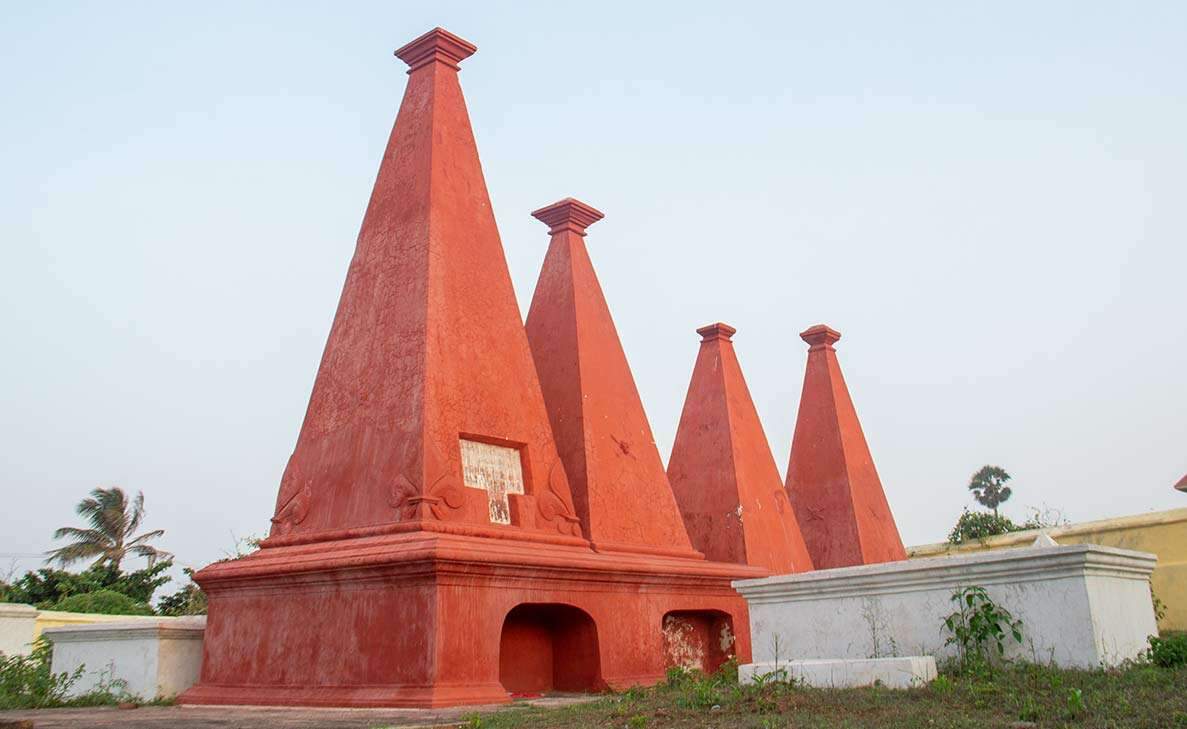 Steeped in history, the Dutch Cemetery in Vizag dates back to the 17th century. Nestled in the heart of Old Vizag, Bheemunipatnam, it serves as the final resting place for Dutch Navigators and Mariners. The Cemetry exists in two locations – one part of it on the beach, and the other in Kummaripalem, which is 2 km away. A total of 52 tombs are spread out in both locations, with 15 being stone-capped, and 5 containing beautiful inscriptions in the Dutch language.
Steeped in history, the Dutch Cemetery in Vizag dates back to the 17th century. Nestled in the heart of Old Vizag, Bheemunipatnam, it serves as the final resting place for Dutch Navigators and Mariners. The Cemetry exists in two locations – one part of it on the beach, and the other in Kummaripalem, which is 2 km away. A total of 52 tombs are spread out in both locations, with 15 being stone-capped, and 5 containing beautiful inscriptions in the Dutch language.
King George Hospital
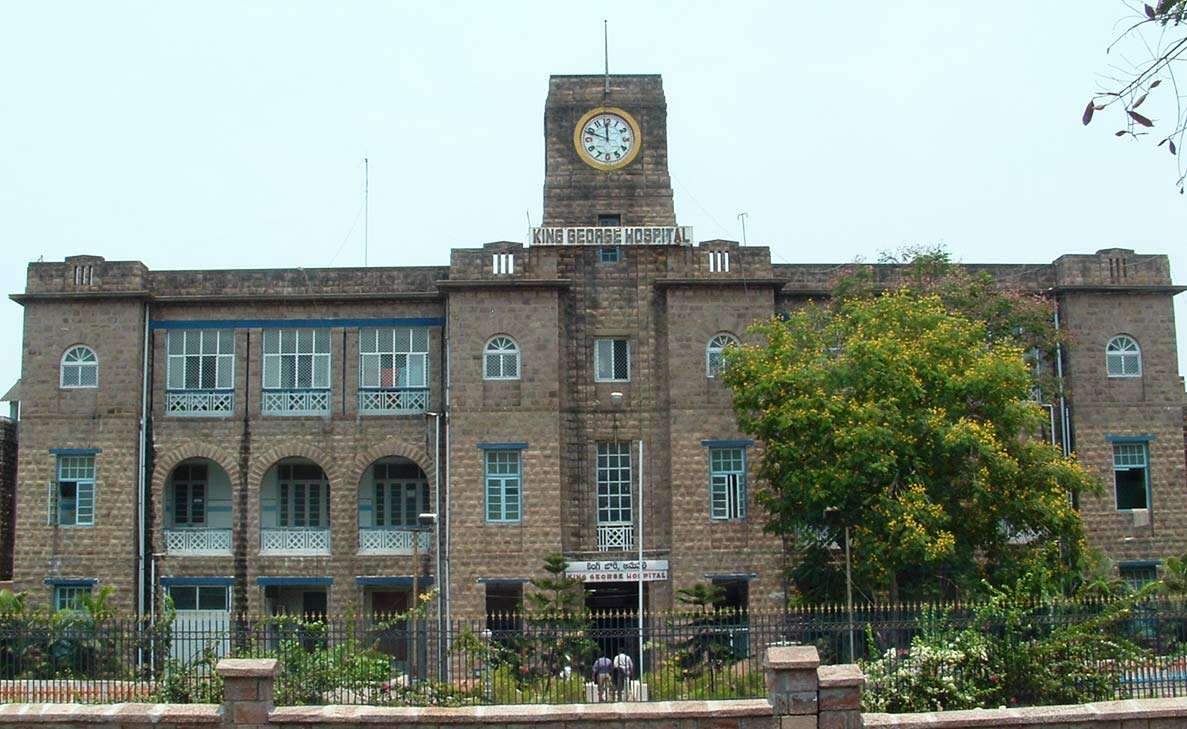 King George Hospital (KGH), associated with Andhra Medical College, has been a cornerstone of healthcare in Vizag since 1923. Established initially as a civil dispensary in 1845, KGH boasts a storied past spanning 178 years. Initially under the Madras State Government’s purview, it underwent several relocations and administrative changes. By 1918, it garnered support from the Maharajah of Vizianagaram and was under local governance. Today, it stands as a centennial institution, proudly affiliated with Andhra Medical College in Visakhapatnam.
King George Hospital (KGH), associated with Andhra Medical College, has been a cornerstone of healthcare in Vizag since 1923. Established initially as a civil dispensary in 1845, KGH boasts a storied past spanning 178 years. Initially under the Madras State Government’s purview, it underwent several relocations and administrative changes. By 1918, it garnered support from the Maharajah of Vizianagaram and was under local governance. Today, it stands as a centennial institution, proudly affiliated with Andhra Medical College in Visakhapatnam.
Collectorate Building
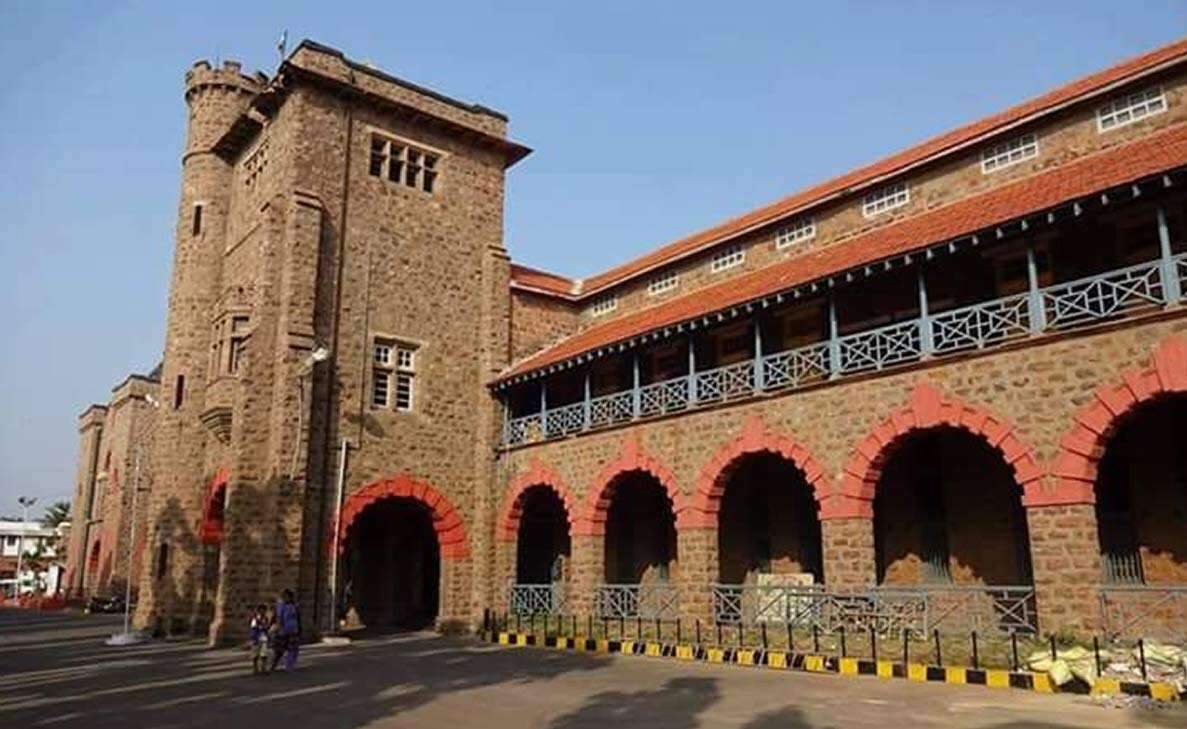 Erected by Gyanan and Dunckerly Company between 1865 and 1914, the Collectorate Building has long been the hub of district governance in Vizag. This architectural marvel, an E-shaped edifice with pyramidal roofs, features dual courtyards and a central porch adorned with circular arches. Inside, a grand spiral staircase ascends from the porch, while a stately bay window graces its facade. The ground floor’s ceiling is supported by wooden beams resting on steel I-beams imported from England, contributing to Visakhapatnam’s rich architectural heritage.
Erected by Gyanan and Dunckerly Company between 1865 and 1914, the Collectorate Building has long been the hub of district governance in Vizag. This architectural marvel, an E-shaped edifice with pyramidal roofs, features dual courtyards and a central porch adorned with circular arches. Inside, a grand spiral staircase ascends from the porch, while a stately bay window graces its facade. The ground floor’s ceiling is supported by wooden beams resting on steel I-beams imported from England, contributing to Visakhapatnam’s rich architectural heritage.
Hawa Mahal
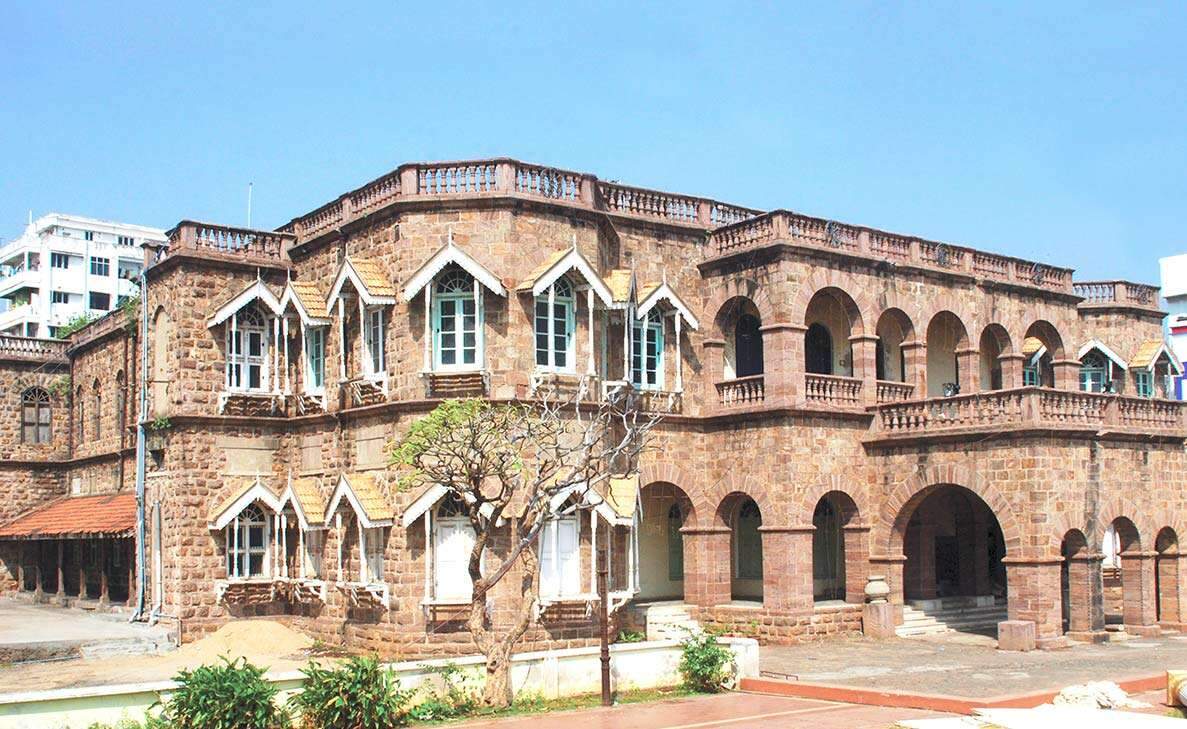 Constructed between 1917 to 1921, Hawa Mahal stands majestically along Beach Road, originally envisioned as a summer retreat for Maharaja Ramchandra Deo of Jeypore, Orissa. This heritage structure, once a regal palace, continues to exemplify the preservation of architecture and serve as a prominent venue for public events in Vizag.
Constructed between 1917 to 1921, Hawa Mahal stands majestically along Beach Road, originally envisioned as a summer retreat for Maharaja Ramchandra Deo of Jeypore, Orissa. This heritage structure, once a regal palace, continues to exemplify the preservation of architecture and serve as a prominent venue for public events in Vizag.
In its heyday, Hawa Mahal was the scene of lavish royal gatherings and visits by esteemed guests, including India’s first Prime Minister Jawaharlal Nehru in 1961 and the nation’s inaugural President Dr. Rajendra Prasad. The palace has also housed Vizag’s first Women’s College and a Nursing School.
Designed to harness the refreshing sea breeze, the two-story stone palace features octagonal extensions and arched openings. Inside, Burma teak and Madras roofing ensure a cool ambiance. The main structure’s central porch is flanked by semi-circular verandas, leading to the palace’s wooden windows. Iron-grilled staircases provide access to the upper level.
Victoria Town Hall
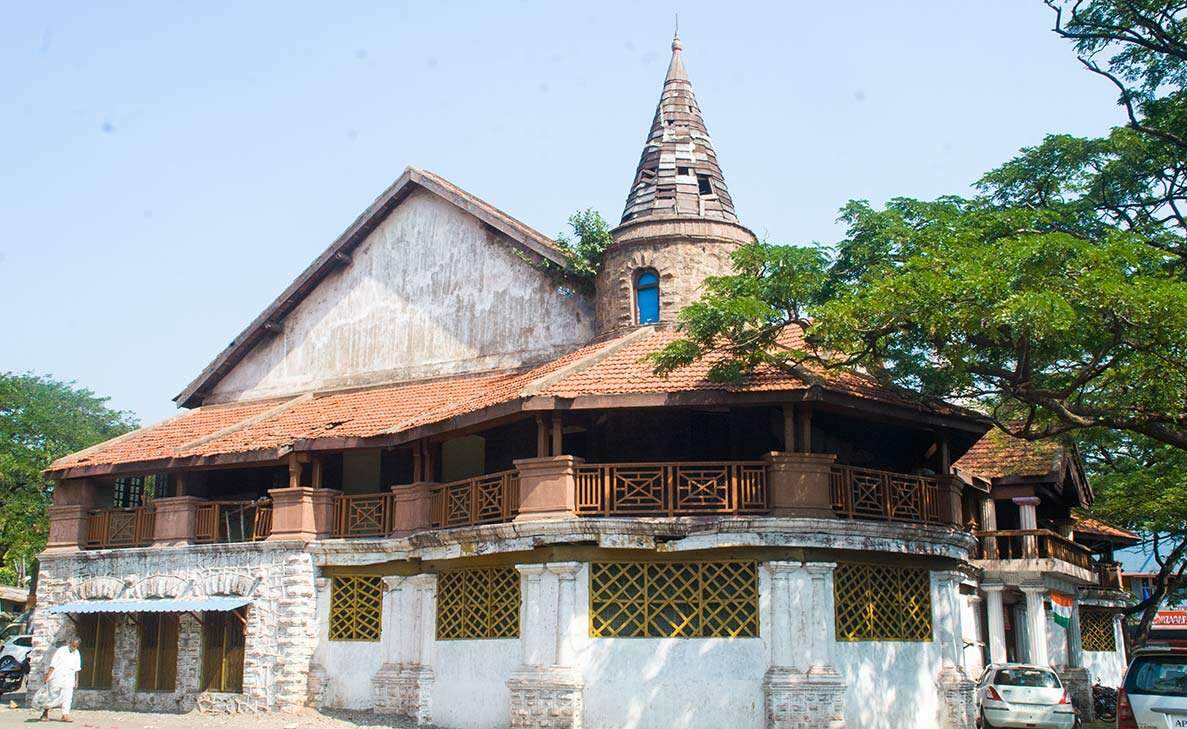 Constructed on a former fishing village’s site, Victoria Town Hall was established in 1893 by the Maharaja of Bobbili to mark Queen Victoria’s Diamond Jubilee. It was later given to the local municipality in 1904. Perched atop a spacious hillock, this balanced edifice offers panoramic views of the harbor. The two-story building features a gabled roof and flanking stone towers capped with conical wooden tops, resembling sentinel watchtowers. Each tower is punctuated with small, semi-circular arched windows.
Constructed on a former fishing village’s site, Victoria Town Hall was established in 1893 by the Maharaja of Bobbili to mark Queen Victoria’s Diamond Jubilee. It was later given to the local municipality in 1904. Perched atop a spacious hillock, this balanced edifice offers panoramic views of the harbor. The two-story building features a gabled roof and flanking stone towers capped with conical wooden tops, resembling sentinel watchtowers. Each tower is punctuated with small, semi-circular arched windows.
The building’s entrance is graced with intricately carved wooden eaves, and its refined stonemasonry has inspired subsequent architectural design in the region.
Saint Aloysius High School
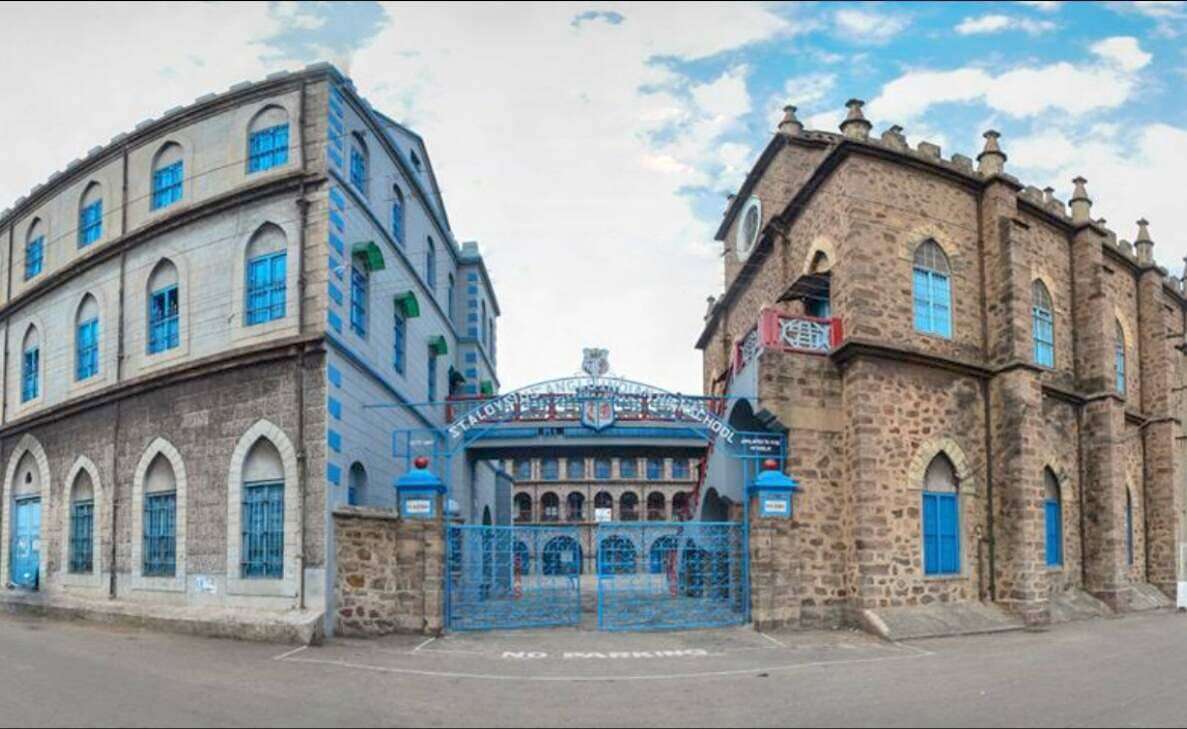 Founded in 1847 by the Roman Catholic Mission, Saint Aloysius High School is a U-shaped edifice encircling a vast courtyard that doubles as a playground. The building is a testament to Gothic architectural influences.
Founded in 1847 by the Roman Catholic Mission, Saint Aloysius High School is a U-shaped edifice encircling a vast courtyard that doubles as a playground. The building is a testament to Gothic architectural influences.
The complex comprises two main sections: the school building and the adjoining chapel. The ground floor corridors are made of stone floors and are flanked by large semi-circular arches crafted from precisely cut wedge-shaped stones. The roofs of both levels are constructed with traditional Madras terracing, while the first floor features cuddapah stone flooring.
Erected in 1935-36, a bridge connects the school to the chapel, which is adorned with a rose window of stained glass and stone pyramidal structures that highlight the chapel’s architectural harmony.
The next time you pass by one of these buildings in the city, we hope you see them through new eyes – recognizing that they stand to offer us a peek into older times, whilst also showcasing the beautiful architecture brought to life by those who called Vizag home, long before us.
Read also: Step into the past at these ancient temples in Vizag
Stay tuned to Yo! Vizag website and Instagram for more heritage articles.


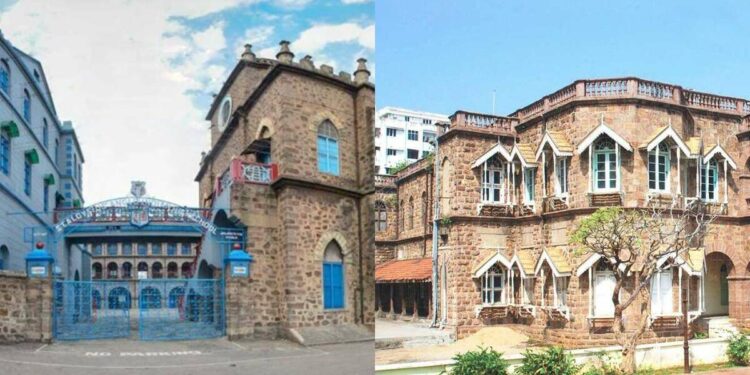







Discussion about this post